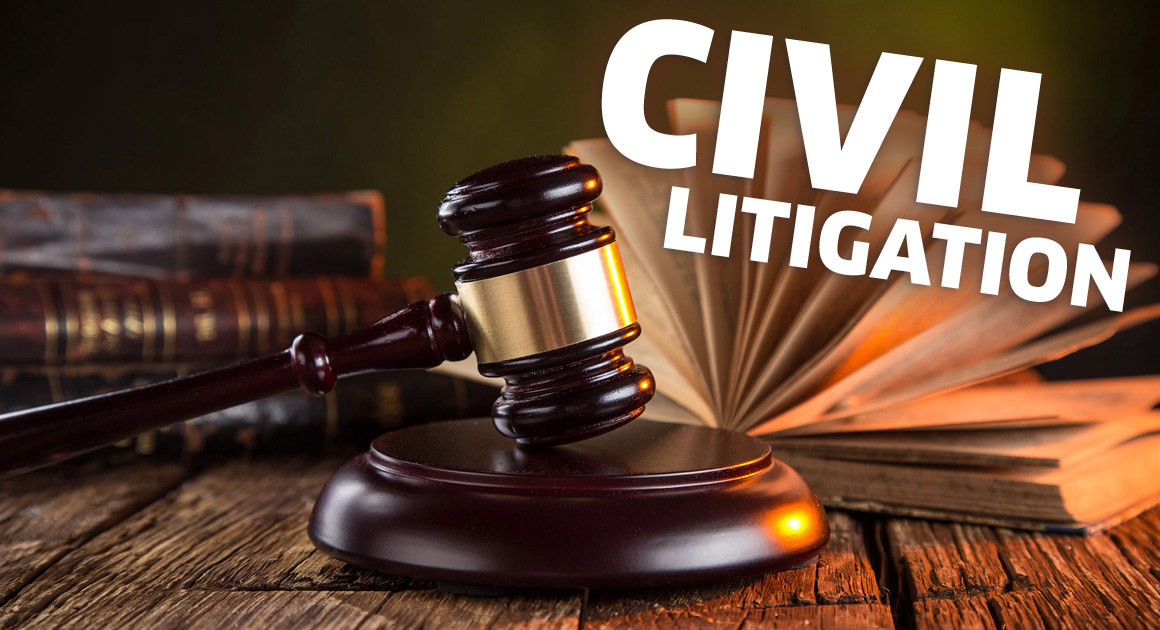Civil litigation is defined as a legal dispute between individuals or the families of individuals who have suffered an injury or death as a result of negligence, recklessness or misconduct of others. Civil cases differ from criminal cases in that civil cases typically end with monetary compensation and criminal cases end in jail or prison time; however, both types of cases can be filed at the same time. Civil litigation attorneys are sometimes referred to as trial lawyers and are a very important piece to a successful civil litigation case.
Process: It is strongly recommended to seek legal advice and or representation for all aspects of civil litigation. Civil litigation attorneys will provide practical guidance, advise, advocate and protect your rights.
- Complaint: The process of civil litigation or a civil lawsuit begins when a Plaintiff (injured individual) files a claim or complaint against the Defendant (individual(s) who caused injury) asking for monetary compensation or damages following the injury.
- Answer: After the Defendant receives the complaint, they have a time limit to answer, admit, counterclaim or provide a third party complaint back to the Plaintiff.
- Discovery: Discovery is often considered the most important step in civil litigation. During this process, information, evidence, and research of relevant law occur by both parties. Typically, there are three forms of Discovery: interrogation, depositions and evidence/documentation collection all of which are taken under oath.
Outcome: In some instances the court will require an attempt at an alternate dispute resolution take place prior to trial to reach a settlement out of court. This alternate dispute resolution can take place with mediation or arbitration.
- Mediation: Mediation is typically non-binding meaning if a resolution cannot be reached, a trial can be requested. Mediation is conducted by a neutral third party who is not the judge.
- Arbitration: Generally, arbitration is a binding process, waiving the right to a trial, but can take on the non-binding process as well. Both the Plaintiff and Defendant select one arbitrator whom together selects a third arbitrator. The binding process will take the place of a trial without the right to appeal after a decision has been made.
- If a settlement cannot be negotiated, a trial will ensue with or without a jury, ending in a verdict. Post-verdict appeals can be made to have the case reviewed in a higher court or a motion to conduct a new trial will be filed. The appeal process can be extremely time-consuming.
There are several types of civil litigation including but not limited to, personal injury, family law, intellectual property, and labor law. At the Law Offices of Reginald Keith Davis, we specialize in all types of civil litigation as well as criminal defense and estate and probate law.
Contact Reginald Keith Davis today with your questions or comments. Hablamos Espanol.

